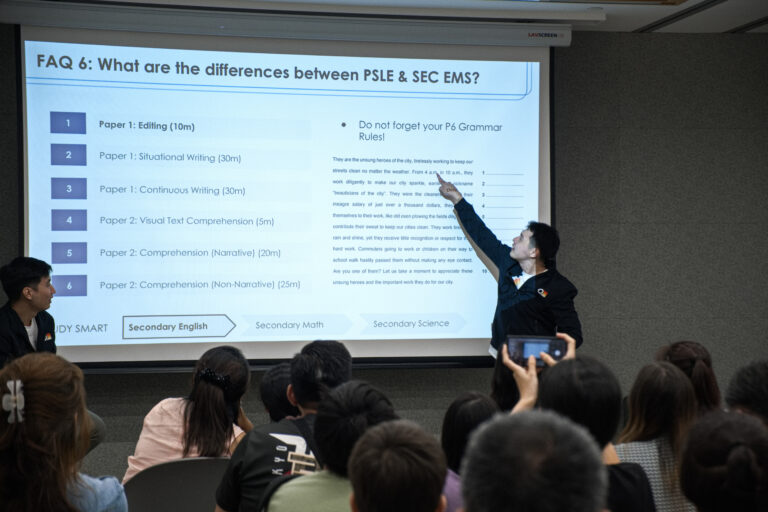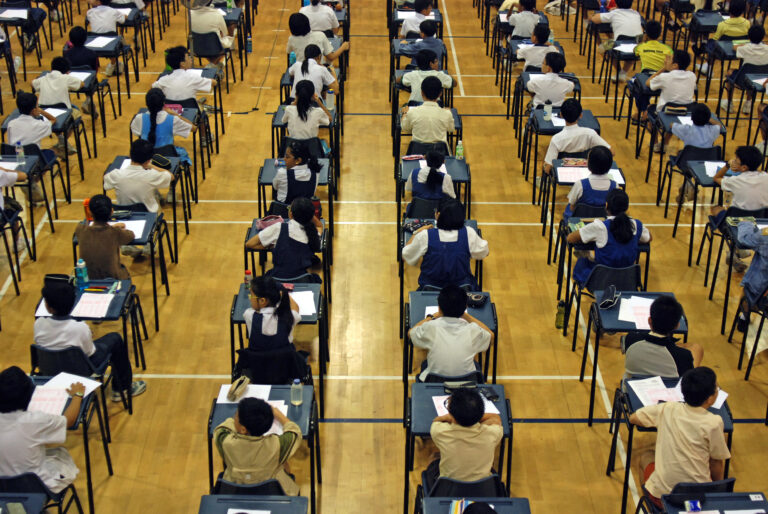Congratulations to all Primary 6 students for completing the PSLE 2023! In 2016, the Ministry of Education (MOE) announced plans to revise the approach to the PSLE assessment, shifting away from the traditional T‑score Scoring System to the 1Achievement Level (AL) Banding System. This was in tandem with a series of reforms over more recent years: 2removal of some examinations, 3Subject-Based Banding (SBB) in Secondary Schools and even the spontaneous 4reduction in content and scope of examinations during Covid-19 (for students’ mental wellbeing).
With these recent fine-tuning policies and changes, MOE HQ has sent a clear signal that as a nation, we are moving away from the over emphasis of academic results and focusing more on supporting students to discover their strengths and interests. This is in confluence with the 5elimination of naming top students and ranking schools as a practice since 2013.
AL Banding System: One Year On
How is the AL Banding System different from the T‑score, and what are the implications?
The traditional T‑score system, that many Singaporean parents had undergone, was a reflection of how well a student performed academically relative to their peers. There was bell-curve moderation in place, and a highly competitive environment was created with the naming of top students, ranking of top schools and schools that did not perform so well.
The AL Banding System strives to reduce this focus on academic performance at such fine levels, and instead places students in bands (based on mark ranges). This has three direct implications in the Secondary School (S1) Posting process and indirectly influences how students and parents should go about selecting their secondary schools:
- More students will have the same PSLE Score
- More schools will have similar cut-off points (COP)
- Students will have a wider range of schools to choose from
Secondary School Posting (S1) Exercise 2023
Posting Criterion, Tie-Breakers, Higher Chinese Language (HCL)
The S1 posting system follows the following order:
- Academic Merit (PSLE AL Score)
- Order of School Choice
- Vacancies Available at Selected Schools
The student’s PSLE Score remains the first criteria: a student with a higher PSLE score will be considered first for their chosen school. As mentioned earlier, more students will have the same PSLE Score. This means that the Order of School Choice will play a larger role (compared to the T‑score system) for students trying to get into the school that they prefer. When contending for the last few vacancies in a school, the tie-breaker system will kick-in:
- Citizenship (Singaporean Citizen, Permanent Resident, International Student)
- Order of School Choice
- Randomised Balloting
Students who do not get a place in any of their selected schools will be placed in a school with remaining vacancies based on their PSLE Score and residential address. Students taking HCL with a PSLE Score <15 will be eligible for posting advantage to 6SAP schools.
Secondary School Courses
Course Eligibility
| PSLE Score | Course Placement |
| 4–20 | Express |
| 21–22 | Express or Normal(Academic) Option |
| 23–24 | Normal(Academic) |
| 25 | Normal(Academic) or Normal(Technical) Option |
| 26–30 | Normal(Technical) |
For students not eligible for any of the courses above, they can retake the PSLE or progress on to more hands-on and experiential learning at Assumption Pathway School (APS) or NorthLight School (NLS).
Subject-based Banding (SBB)
With the implementation of SBB, students in N(A) or N(T) streams can choose to take on certain subjects at the more demanding level. By 2024, Full SBB will be implemented, which will offer more subject options.
Secondary School Options
In addition to the Secondary School Courses above, it is also equally important to consider the distinctive strengths that each school has to offer. These include:
- Applied Learning (ALP) and Learning for Life (LLP) Programmes
- Integrated-Programme
- Direct-School Admission-Secondary (DSA-Sec)
- Special Education Needs (SEN)
- Co-curricular Activities (CCAs) & Strategic-Partnered CCAs (SP-CCAs)
- MOE Language, Arts & Music Programmes
- Location & distance
Here is a video of a webinar conducted by Dr Boon last year on the 6 key considerations in selecting a secondary school after completing the PSLE examination that continues to be relevant this year.

A Note About the Author
Dr. Teo Boon Heng is a Director at Think Teach Academy. He leads the Academic Tribe in the management, planning and execution of our Think Smart, Teach Smart approach across our programmes.
Prior to joining Think Teach Academy, Dr. Boon developed much passion and gained considerable experience in academia, with his last role as Head of Scholar Development at NUS Graduate School. He was awarded the prestigious NUS Graduate School for Integrative Sciences & Engineering (NGS) PhD Scholarship for research of passivated contact solar cells supported by the National Research Foundation, Prime Minister’s Office Singapore.
Prior to his postgraduate studies, Dr. Boon served as a naval officer with the Republic of Singapore Navy after graduating from Imperial College London with a Master of Engineering in Materials Science & Nuclear Engineering. He is also an alumni of Anglo-Chinese School (Independent) and a member of the Royal School of Mines, United Kingdom.
1 — https://www.todayonline.com/singapore/10-things-know-about-changes-psle-scoring-system
3 — https://www.moe.gov.sg/microsites/psle-fsbb/full-subject-based-banding/main.html
6 — https://www.moe.gov.sg/news/parliamentary-replies/20210510-sap-schools
This article was proudly written for you by the Think Teach Team. Every year, we impact over a thousand students and empower them with our smart techniques to achieve exam excellence in their school exams as well as the PSLE. We want your child to be our next success story!



